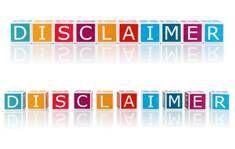Most attorneys – not to mention CPAs, Enrolled Actuaries and Enrolled Agents – will be pleased with the recently issued final regulations under Circular 230, Regulations Governing Practice Before the Internal Revenue Service (31 C.F.R. Part 10).

Even clients may take notice if they stop seeing those inscrutable, ubiquitous disclaimers on every email they receive from their professional tax advisers.
Many are the clients who received a simple email from their tax attorney saying, “Can we move lunch from 12:30 to 1 p.m.?” followed by “This message does not constitute written tax advice ... ”
Of course, law firms may decide to maintain some disclaimer as to legal advice, but the new version of Circular 230 repeals the old covered opinion rules that were contained in Section 10.35.
The new version contains one standard for written tax advice, which is articulated in Circular 230, Section 10.37. These rules apply only to practice before the IRS and do not change or replace other ethical or legal standards applicable to individuals subject to Circular 230.
The new approach in Section 10.37 is intended to eliminate much of the uncertainty and complexity associated with the former covered opinion rules. With the new “principles based” approach, practitioners have more discretion to determine the form and content of their written tax advice. They should find more latitude to tailor that advice to the particular circumstances of an engagement, as well as to the factual and legal complexity of the underlying issues.
Under the new Section 10.37 in the final regulations, a practitioner rendering written tax advice – including electronic communications – must:
- Base the advice on reasonable factual and legal assumptions, including assumptions as to future events;
- Reasonably consider all relevant facts and circumstances that the practitioner knows or reasonably should know;
- Use reasonable efforts to identify and ascertain the relevant facts;
- Not rely on representations, statements, projections, financial forecasts or appraisals if such reliance would be unreasonable;
- Relate applicable law and authorities to facts; and
- Not take into account the possibility that a return will not be audited or an issue will not be raised on audit.
New Section 10.37 is applicable to written advice rendered after June 12, 2014. The term “written advice” is not defined in Circular 230. However, Section 10.37 clarifies that government submissions on a client’s behalf (for example, comments on proposed regulations) and continuing education presentations are not written advice under the new rules.
The IRS also stated in the preamble to the regulations that it expects that the current practice by most practitioners of inserting a Circular 230 disclaimer at the conclusion of every email or other writing, whether the disclaimer is necessary or appropriate, will be discontinued because new Section 10.37 does not include the covered opinion disclosure provisions that were in former Section 10.35.
In fact, in a recent broadcast of Tax Talk Today, Karen Hawkins, director of the Office of Responsibility, said her office would issue “desist” letters to practitioners who continue to use disclaimers referencing Circular 230. The archive of the webcast can be viewed at www.taxtalktoday.com/programs.
Coincident with adopting the new rules under Section 10.37, the procedural rules under Section 10.36 were modified and finalized. Under Section 10.36:
- Persons responsible for overseeing the firm’s tax practice are subject to the rules of Circular 230.
- Responsible persons must take reasonable steps to ensure that the firm has adequate procedures in effect for all members, associates, and employees for purposes of complying with Circular 230.
- If the firm fails to identify a responsible person, the IRS will determine the person responsible for overseeing compliance with Circular 230 or behalf of the firm.
In order to avoid discipline under the rules of Circular 230, the person responsible for overseeing the firm’s tax practice must:
- Take reasonable steps to ensure that the firm has adequate procedures to comply with Circular 230;
- Take reasonable steps to ensure that firm procedures are properly followed; and
- Take prompt action to correct noncompliance, if the responsible person knows or should have known that one or more individuals who are members of, associated with, or employed by the firm have engaged in a pattern or practice that does not comply with the provisions of Circular 230.
While the demise of the covered opinion disclaimer is getting most of the press coverage, other changes in the Circular 230 rules make now a good time to review the policies and procedures surrounding your firm’s tax practice.



